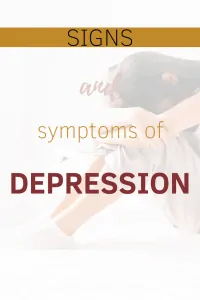How to Head Off Stress & Anxiety Before They Happen
How to Head Off Stress & Anxiety Before They Happen
If you suffer from stress and anxiety, you probably want to avoid future run-ins with these problems. Of course, stress is inevitable, but you can learn to cope with it in a functional, healthy way. Here are some tips for staving off stress and anxiety before they catch up with you.
1.) Good Nutrition
This is listed as number 1 for a reason. It is one of the most important and effective means by which you can cope with stress and anxiety and prevent them from taking over your life. Some nutrients and foods that are good for proper brain and body function are:
• Essential Fatty Acids, such as those found in olive oil, salmon, flax seeds, and other unrefined vegetable oils should be sought out and deliberately included in the diet.
• Vitamin D
This vitamin plays a significant role in mood regulation. In fact, has been used to treat people who suffer from Seasonal Affective Disorder (SAD).
2.) Regular Exercise
This is also very important for avoiding the negative effects of stress and anxiety. Don’t wait until you feel stressed or anxious; like good nutrition, make exercise a part of your regular routine.
Exercise increases circulation, and also induces the body to produce endorphins. These brain chemicals profoundly affect your mood and response to stress.
Exercising with realistic goals is also important. You don’t want to bring on anxious feelings by “failing” at an enormous exercise goal like running a marathon right away when you’ve never run before.
Keeping your goals realistic – say running an around a quarter-mile track once and walking another 3 laps – can boost your confidence and give you a sense of accomplishment. These are great weapons against stress and anxiety.
3.) Positive Self-Talk
You may need help in learning how to break negative self-talk patterns. Many of us have developed patterns of thought that automatically involve self-abasement.
For example, if you make a mistake on a piece of paperwork, your mind may automatically begin “beating you up,” and you’ll have thoughts that you can’t do anything right, you are terrible at paperwork, and so forth. Learning to recognize this pattern and redirect your thoughts to more positive ones can help prevent further stress and anxiety.
4.) Deep Breathing
It may seem silly to focus on breathing as part of preventing stress and anxiety. Everyone knows how to breathe, right? Yes, everyone knows how to breathe, but few people know how to breathe properly.
Deep breathing is the deliberate taking of breath that helps focus your thoughts and energy. It also promotes the circulation of oxygen throughout the body. Exhaling deeply and fully is also important, as this more thoroughly eliminates toxins from the body.
5.) Rest
Getting adequate sleep is essential for helping your body cope with stress. Everything seems bigger, scarier, and more worrisome when you are exhausted.
6.) Know the Symptoms
Learn to recognize your body’s cues that it’s experiencing too much stress and its resulting anxiety. Pay attention to things like feelings of restlessness, fatigue, anxious thoughts, and muscle tension. Once you learn to recognize the stressful trend, you can stop it before it takes hold.



